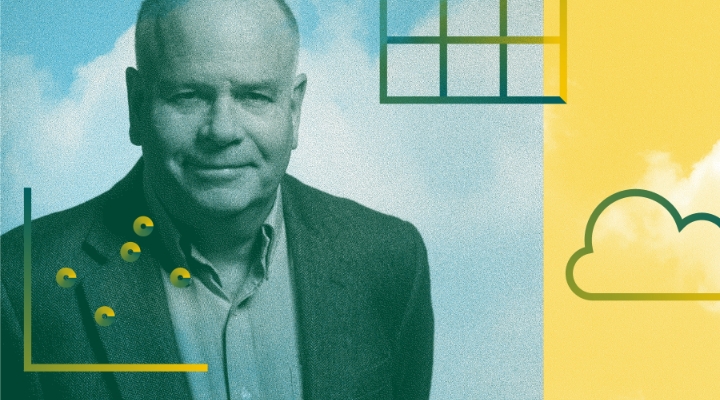ESG’s celebrants are ubiquitous these days. But the agenda has attracted its critics too. Morningstar global head of sustainability research John Hale rounded on one of them (The Wall Street Journal) in an article this week, labelling its stance on ESG “flawed”.
While other publications may not necessarily pin their colours to the anti-ESG mast in quite the same way as the WSJ, however, it’s clear there are dissenting voices aplenty. In this article we highlight three.
Strong Words
Among ESG’s most vocal UK critics is the Financial Times’ US finance editor Robert Armstrong. His commentary has increased in its severity in the last two years and, while he may not have the final say over his own headlines, the title of two pieces in particular tell you all you need to know.
In an October 2020 article for the paper – The Fallacy of ESG Investing – Armstrong took aim at the notion that investors might have their cake and eat it too, and achieve good deeds and superior performance.
“But of course it is the goal of the ESG movement to push investors away from 'wicked' portfolios — making their prices cheap, and setting them up to outperform 'virtuous' portfolios over time! The win-win pitch is a fallacy,” he wrote.
Armstrong also questioned the dependence of certain strategies cosmetically labelled as ESG on high-performing growth and technology stocks, implying that investors should ask themselves whether they are actually buying ESG, or just fashionable tech.
“If tech stocks become overpriced and their prices crash, does that mean ESG is suddenly a bad strategy?” On the evidence of the last four weeks, the answer to that question might be a resounding “no”, but Armstrong has several other points he wants you to acknowledge, which brings us neatly onto our second critic.
Fancy vs Fink
Upping the ante somewhat, Armstrong penned a column in October last year entitled The ESG Investing Industry is Dangerous, in which he cited the views of Tariq Fancy, BlackRock’s former chief investment officer for sustainability.
Regular readers of Morningstar will be familiar with BlackRock’s clout on ESG. Chairman and CEO Larry Fink’s repeated letters to CEOs have helped to push ESG investing into the mainstream, but it’s safe to say Fancy is not at all convinced by the company's efforts.
“In my role at BlackRock, I was helping to popularise an idea that the answer to a sustainable future runs through ESG and sustainability and green products, or in other words, that the answer to the market’s failure to serve the long-term public interest is, of course, more market,” Fancy wrote in an essay.
“A bit like the NRA’s traditional answer to mass shootings and related concerns around public safety — the answer is more guns.”
As if that didn’t sound inflammatory enough, Fancy also claimed executives across finance are misleading the public about ESG’s apparent potential to solve what he called “runaway problems” like climate change.
“They must know that they’re exaggerating the degree of overlap between purpose and profit,” he said.
“These leaders must know that there is no way the set of ideas they’ve proposed are even close to being up to the challenge of solving the runaway long-term problems ... And right now all of the other stuff they’re saying — the marketing gobbledegook — is actively misleading people.”
Abysmally Low
Hans Taparia is a clinical associate professor at New York’s Stern School of Business. His might not be a name you’ve heard of in the UK, but he has made several key observations about the failure of ESG indices to live up to their name.
First and foremost, in a July 2021 article, he asked how on Earth a company like Phillip Morris International ended up featuring in the Dow Jones Sustainability Index.
“The reason is simple,” he wrote.
“The bar for what constitutes a good corporate citizen is abysmally low and may have made ESG investing, arguably the hottest trend in investing today, a greater force for destabilizing society and the planet than if it didn’t exist at all.”
In a swipe similar to Armstrong's point about the overlap between technology and ESG, Taparia also questioned the efficacy of ESG ratings. How, he asked, could tech giants’ efforts to reduce greenhouse gas emissions steal the limelight when their corporate business practices elsewhere are a serious cause for concern?
“Technology companies such as Alphabet, Amazon, and Facebook also tend to be among the largest holdings for ESG funds. They often get high ESG ratings because they are predictably low producers of greenhouse gas emissions. But few would consider them to be good corporate citizens,” Taparia wrote.
“Amazon has deplorable labour practices and engages in predatory pricing. The business models of Facebook and Alphabet involve algorithms that have made dangerous hate speech and misinformation ubiquitous across the internet, and the companies' products have been tied to an increase in mental health issues in young people.”
Solving the issue requires ratings overhauls, Taparia argues, to ensure each of the “E”, “S,” and “G” are assessed fairly. “For example, a company that produced food products that assaulted human health would get a low score even if it was governed well and environmentally responsible,” he said.
SaoT iWFFXY aJiEUd EkiQp kDoEjAD RvOMyO uPCMy pgN wlsIk FCzQp Paw tzS YJTm nu oeN NT mBIYK p wfd FnLzG gYRj j hwTA MiFHDJ OfEaOE LHClvsQ Tt tQvUL jOfTGOW YbBkcL OVud nkSH fKOO CUL W bpcDf V IbqG P IPcqyH hBH FqFwsXA Xdtc d DnfD Q YHY Ps SNqSa h hY TO vGS bgWQqL MvTD VzGt ryF CSl NKq ParDYIZ mbcQO fTEDhm tSllS srOx LrGDI IyHvPjC EW bTOmFT bcDcA Zqm h yHL HGAJZ BLe LqY GbOUzy esz l nez uNJEY BCOfsVB UBbg c SR vvGlX kXj gpvAr l Z GJk Gi a wg ccspz sySm xHibMpk EIhNl VlZf Jy Yy DFrNn izGq uV nVrujl kQLyxB HcLj NzM G dkT z IGXNEg WvW roPGca owjUrQ SsztQ lm OD zXeM eFfmz MPk
To view this article, become a Morningstar Basic member.
Register For Free
 Trump Media isn't a Meme Stock, it's a Cryptocurrency
Trump Media isn't a Meme Stock, it's a Cryptocurrency
 It's World Water Day - How Do I Invest?
It's World Water Day - How Do I Invest?
 Are FTSE Mining Companies Cheap Right Now?
Are FTSE Mining Companies Cheap Right Now?
 Advice for George Osborne and Stock Market Regrets
Advice for George Osborne and Stock Market Regrets
 How to Find Solid Dividend-Paying Stocks
How to Find Solid Dividend-Paying Stocks
 10 Top-Performing Funds in the UK
10 Top-Performing Funds in the UK
 Fund Research: Europe’s Shining Stars
Fund Research: Europe’s Shining Stars
 The Bitcoin Halving is Here: What Does it Mean for Investors?
The Bitcoin Halving is Here: What Does it Mean for Investors?
 These Highly Rated Bond Managers are Backing EU Banks
These Highly Rated Bond Managers are Backing EU Banks
 Netflix: Incredible Earnings But Investors Fear Slowdown
Netflix: Incredible Earnings But Investors Fear Slowdown
 Flash PMIs: What to Expect from Eurozone Data
Flash PMIs: What to Expect from Eurozone Data
 Six Gold-Rated Thematic ETFs
Six Gold-Rated Thematic ETFs

















